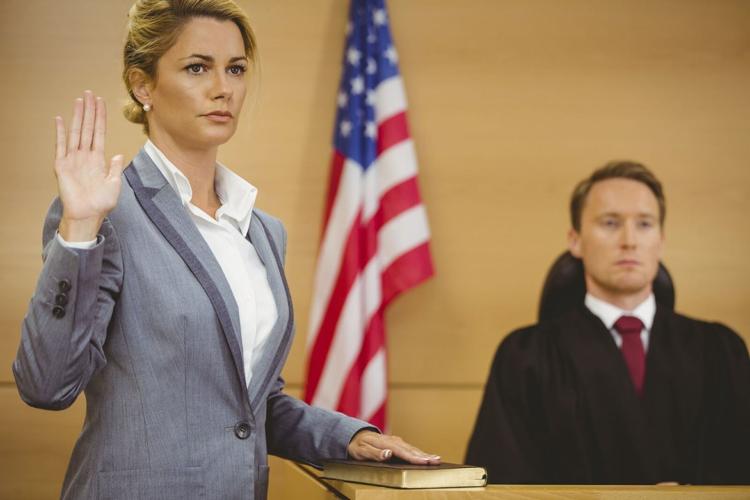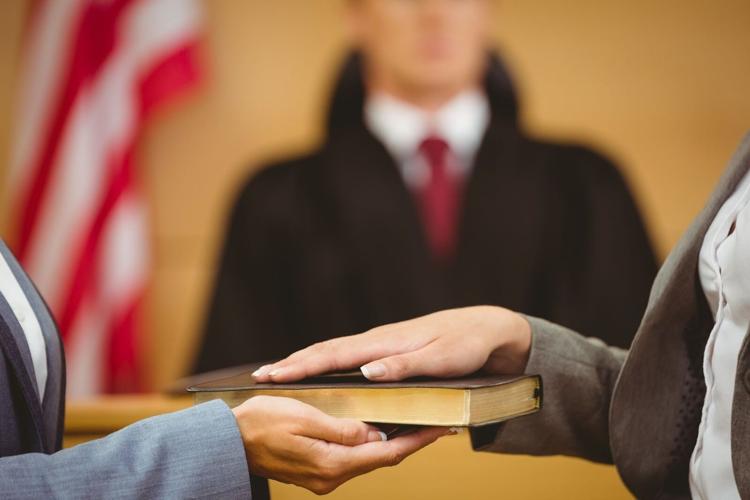In product safety cases, knowledgeable individuals are vital in assisting courts in grasping intricate technical and scientific matters. Their testimony can significantly influence a case's outcome, offering crucial insights into product design, manufacturing processes, and safety procedures.
However, the trustworthiness and credibility of these experts can significantly influence a case's outcome. Courts must thoroughly assess expert witnesses to guarantee reliable, pertinent, and impartial testimony. This includes examining their qualifications, experience, and methodology and recognizing potential conflicts of interest or biases.
By taking these steps, courts can guarantee that expert testimony is trustworthy and dependable, leading to the delivery of justice.

The Importance of Expert Witnesses
Expert witnesses are essential in product liability lawsuits, where complex technical and scientific issues are often at the heart of the case. They provide valuable insights and opinions on product design, manufacturing processes, and safety protocols.
A 2023 study by the American Association for Justice (AAJ) found that in product liability cases where a qualified expert witness testified, the average jury award was significantly higher than that in cases without expert testimony.
However, the quality and credibility of expert witnesses can vary significantly, and courts must be vigilant in evaluating their reliability and credibility. The role of Lawyers is also crucial in this process. Product liability attorneys, like those in the Consumer Shield network, efficiently identify and present expert witnesses to the court and challenge the credibility and reliability of opposing experts.
By effectively utilizing expert witnesses and challenging opposing experts, lawyers can significantly impact the outcome of product liability cases and help ensure justice is served.
What is the Role of Role of the Court
Under the Federal Rules of Evidence and various state laws, judges are gatekeepers tasked with determining the admissibility of expert testimony. This role is crucial in ensuring that only relevant and reliable scientific or technical evidence reaches the jury, preventing them from being misled or unduly influenced by questionable or unsubstantiated claims.
Courts employ a multi-faceted approach to fulfill this gatekeeping function, scrutinizing various aspects of an expert witness's qualifications, methodology, and the underlying basis for their opinions.
Courts evaluate expert witnesses using a variety of factors, including:
1. Assessing Qualifications and Expertise
Examining their qualifications and expertise is the first step in evaluating an expert witness's credibility. Courts will closely review the individual's educational background, professional experience, publications, and recognition within their field of study.
Experts are typically required to demonstrate a high level of specialized knowledge, training, or education that qualifies them to provide reliable opinions on the subject. This vetting process helps ensure the witness possesses the credentials and expertise to offer the court and jury valuable insights.
2. Methodology and Techniques Used
Courts also scrutinize the methodology and techniques used by expert witnesses, ensuring they employ reliable and accepted methods. The expert's conclusions must be based on sufficient data and evidence, and courts may consider factors such as their use of industry standards, peer-reviewed literature, and empirical data.
This evaluation helps courts determine whether credible and trustworthy research supports the expert's opinions and whether their methods are widely accepted in the relevant field.
Examining the Underlying Basis for Expert Opinions
Beyond qualifications and methodology, courts also closely scrutinize the underlying basis for an expert witness's opinions and conclusions. This involves examining the data, studies, or other information the expert relied on to form their opinions.
Experts may be required to explain how they applied their expertise and methodologies to the case's specific facts and any assumptions or inferences they made in reaching their conclusions.
This process helps ensure that the expert's opinions are supported by a solid foundation of evidence and reasoning rather than being based on unsupported speculation or conjecture.
Identifying and Addressing the Conflicts of Interest
Another critical aspect of evaluating expert witness credibility is identifying and addressing potential biases or conflicts of interest. Courts recognize experts may have personal, professional, or financial interests influencing their opinions.
During vetting, courts inquire about prior relationships, compensation, or incentives tied to the case's outcome and other factors compromising objectivity.
By examining and addressing these biases, courts ensure that expert testimony is unbiased and focused on providing accurate and reliable information.
Assessing the Relevance and Helpfulness of Expert Testimony
Even if an expert witness meets the criteria for reliability and credibility, their testimony must still be relevant and helpful to the specific issues in the product liability case. Courts will evaluate whether the expert's opinions and conclusions directly address the disputed matters and will likely aid the jury in understanding the evidence or determining a fact.
If the expert's testimony is deemed irrelevant, speculative, or unhelpful to the case, the court may exclude it to prevent confusion or undue prejudice to the jury.

FAQs:
What is the Daubert standard for evaluating expert testimony?
The Daubert standard, established by the U.S. Supreme Court, provides a framework for evaluating the admissibility of expert testimony based on its scientific reliability and validity. It requires judges to assess whether the expert's methodology has been tested, subjected to peer review, and has a known or potential error rate.
Can an expert witness be excluded from testifying due to bias or conflicts of interest?
Yes, courts have the authority to exclude or limit the testimony of an expert witness if they determine that the witness's potential biases or conflicts of interest compromise their objectivity and credibility to an unacceptable degree.
Evaluating the reliability and credibility of expert witnesses in product liability lawsuits is a critical responsibility for courts. Judges act as gatekeepers by carefully reviewing the qualifications, methods, biases, and the basis of expert opinions to ensure that only trustworthy scientific or technical evidence is presented to the jury.
This thorough evaluation protects the judicial system's integrity and facilitates fair and well-informed judgments in intricate product liability cases.




(0) comments
We welcome your comments
Log In
Post a comment as Guest
Keep it Clean. Please avoid obscene, vulgar, lewd, racist or sexually-oriented language.
PLEASE TURN OFF YOUR CAPS LOCK.
Don't Threaten. Threats of harming another person will not be tolerated.
Be Truthful. Don't knowingly lie about anyone or anything.
Be Nice. No racism, sexism or any sort of -ism that is degrading to another person.
Be Proactive. Use the 'Report' link on each comment to let us know of abusive posts.
Share with Us. We'd love to hear eyewitness accounts, the history behind an article.